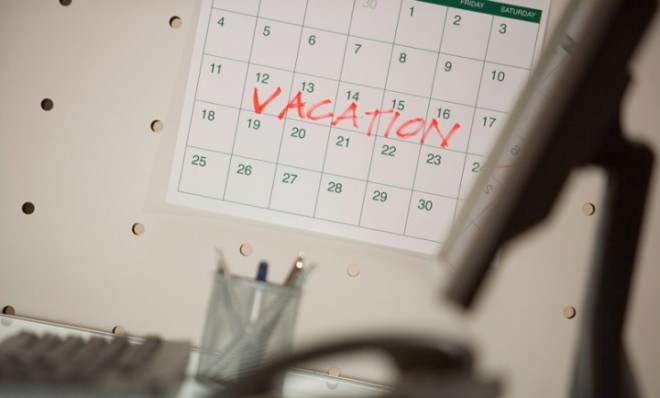Working less, vacationing more: The key to slowing global warming?
Adopting a European-style work week could help slow carbon emissions, says a new study

A free daily email with the biggest news stories of the day – and the best features from TheWeek.com
You are now subscribed
Your newsletter sign-up was successful
Could working less be the key to slowing global warming? You betcha, says one liberal think tank, the Center for Economic Policy and Research, positing that less time spent commuting and working would significantly reduce carbon emissions globally. According to researchers, trimming the 40-hour workweek to something "more European" — which emphasizes more time off and more vacations — could prevent half of the expected global warming that is not already locked in by 2100.
Economist David Rosnick writes that "the relationship between [shorter work and lower emissions] is complex and not clearly understood, but it is understandable that lowering levels of consumption, holding everything else constant, would reduce greenhouse gas emissions." For instance, in Germany and Ireland, workers average 35.6 hours and 35 hours a week, respectively. And computers models suggest that adopting similar schedules worldwide would cut between 8 and 22 percent of every degree of projected warming from now until next century.
As Melissa Breyer at Mother Nature Network points out, Utah decided to close state offices every Friday in 2008, resulting in a 13 percent reduction of energy use. Furthermore, "employees reported increased happiness, absenteeism went down, and state employees were estimated to save between $5 million and $6 million annually by skipping one commute per week."
The Week
Escape your echo chamber. Get the facts behind the news, plus analysis from multiple perspectives.

Sign up for The Week's Free Newsletters
From our morning news briefing to a weekly Good News Newsletter, get the best of The Week delivered directly to your inbox.
From our morning news briefing to a weekly Good News Newsletter, get the best of The Week delivered directly to your inbox.
There are flaws in the study, naturally. Rosnick says the model doesn't take into account telecommuting, which reduces carbon emissions due to driving. Plus, there's no way to tell what a person might do with their free vacation time. (Dirt bike racing, anyone?)
Still, it's an interesting idea, and one that this humble author would be more than happy to test out.
Correction: An earlier version of this article stated that taking a vacation could "prevent as much as half of the expected global temperature rise by 2100." This has been changed to reflect the data.
A free daily email with the biggest news stories of the day – and the best features from TheWeek.com
-
 6 of the world’s most accessible destinations
6 of the world’s most accessible destinationsThe Week Recommends Experience all of Berlin, Singapore and Sydney
-
 How the FCC’s ‘equal time’ rule works
How the FCC’s ‘equal time’ rule worksIn the Spotlight The law is at the heart of the Colbert-CBS conflict
-
 What is the endgame in the DHS shutdown?
What is the endgame in the DHS shutdown?Today’s Big Question Democrats want to rein in ICE’s immigration crackdown